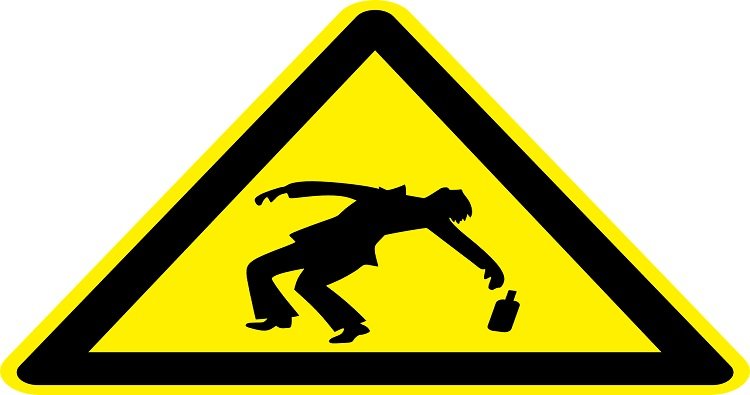- + 91 9958444373
- Malviya Road Dehradun, UK, India.
Blogs detail

Borderline Personality Disorder
- 2020-08-25
It is very important for all of us to have basic knowledge about most recognized and common disorders that are suffered by quite a number of people in our world so that we can somewhere become a source of help for them when their own friends and family might have left him all alone to suffer and there is no one to help them find their way out in their lives. If a little knowledge about these aspects can make someone’s life better, then why not to gain that knowledge? Right? So here today I’m going to share some basic but important information about a personality disorder known as BORDERLINE PERSONALITY DISORDER which is now recognized as EMOTIONALLY UNSTABLE PERSONALITY DISORDER (EUPD).
So basically, Borderline personality disorder is a disorder that is characterized by emotional imbalances and inappropriate ways of interacting in social situations. It impacts the ways of how and what people think and feel about others which in turn causes an imbalance in social, occupational, and daily life functioning.
The person has issues with his own self-image, has difficulty in managing his emotions and behavior, and has unstable relationships with people.
The people with this disorder are highly impulsive and at a cognitive level, they have a core belief that, within the context of friendships and relationships, they will be abandoned. At an effective level they experience an intense fear of abandonment. They also have a propensity to experience intense uncontrolled aggression towards those whom they perceive as abandoning them. They may view themselves or their partners as perfect, kind, caring and highly valued on one occasion but on another (for example, when they need to receive proper care and attention from their partner when they think they should provide it), they view themselves or their partner as cruel, uncaring, reckless and unloving.
But this inappropriate anger, impulsivity, frustration, etc. can be treated and the person can get better over time and can learn to live satisfying lives. And that’s what we will discuss more in this article!
SYMPTOMS:
- The people try to avoid being abandoned imaginatively or I reality and rapidly engage in intimate relationships (physical or emotional).
- The person has unstable relationships with family, friends, and those whom they love and keep swinging from extreme love and care to extreme hatred and anger unexpectedly.
- People often tend to self-harm such as cutting or suicide etc. in a rage of being abandoned.
- They tend to have persistent feelings of emptiness.
- They tend to show susceptible behaviors and continuously doubt others and their intentions.
- People are likely to have feelings of dissociation like cut off from oneself, losing the sense of reality, etc.
It is not necessary that every individual shows all the symptoms mentioned above, they can have a few of the symptoms shown at different times.
Every disorder has certain causes because of which it develops. So some of the CAUSES OF BORDERLINE PERSONALITY DISORDER ARE :
- GENETICS: people who have parents or other family members suffering from schizophrenia, are more likely to have an increased risk of developing the disorder.
- BRAIN ABNORMALITIES: changes in brain structure and brain chemistry like imbalances in the secretion of neurotransmitters and changes in certain areas related to emotional regulation, impulsiveness, and aggressive behavior.
- ENVIRONMENTAL, CULTURAL, AND SOCIAL FACTORS: traumatic life events like abuse, abandonment, or adversity during childhood contribute to developing this disorder. Some might have been exposed to unstable relationships and broken homes etc.
This disorder is more prevalent in women than men in the population as a whole. But nowadays both genders are equally exposed to this disorder. There are notable differences in gender in relation to personality traits. The younger groups are most affected by it approximately 28.6% of the population is suffering from this disorder.
TREATMENT:
- Psychotherapy- the therapist can have one to one interaction with the client trying to get out his problems and reasons for behaving this way. He can make him interact with others so that they know how to talk and express themselves in front of others. They try to build trust in them so that they can build strong relationships with others.
- Dialectical behavior therapy- the therapist tries to create mindfulness and acceptance in clients and make them learn to accept reality and current situations thus helping in making good relations and reduce self- harming behaviors.
- Cognitive Behavior Therapy- the therapist tries to identify and change the core beliefs of the individual, make them accept their inaccurate behaviors, and improve and enhance their skills to cope with negative emotions and distressful thoughts efficiently.
- Pharmacotherapy- medications to reduce mood swings, depression, and impulsiveness so as to make the clients stabilize emotionally.
Thus through proper treatment and care, this disorder can be cured and normal life can be led by a person.
Contact now
We are a group of health professionals, including Psychologists, Clinical psychologist, Rehabilitation Psychologist, Counsellors, Mindfulness Experts and Social Workers. We are working since 2018 in India to foster mental health.
Contact Us
recent blogs
-

SADNESS AND DEPRESSION ARE DIFFERENT!
2020-06-16 -

ALCOHOL USE DISORDER (AUD)
2020-06-19 -

SEASONAL AFFECTIVE DISORDER (SAD)
2020-06-12 -

UNDERSTANDING MINDFULNESS MEDITATION
2020-06-03 -

BURDEN OF DEPRESSION
2020-06-17







